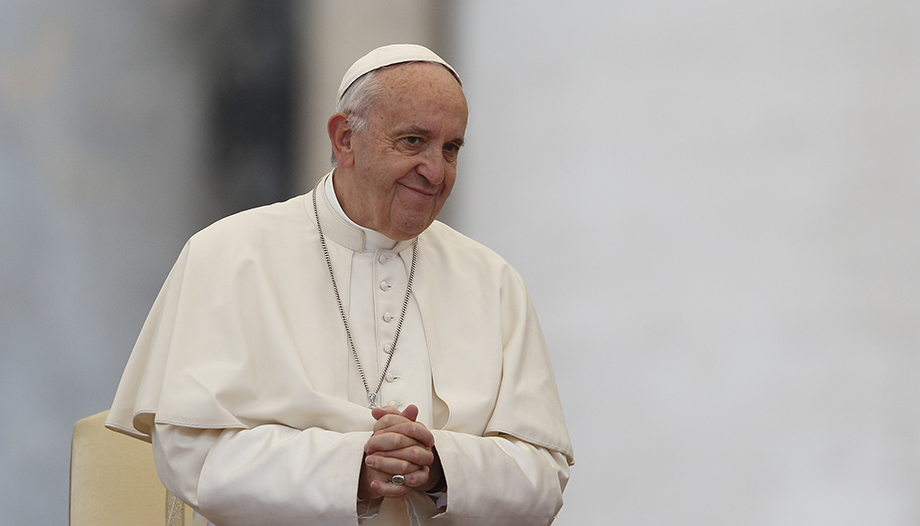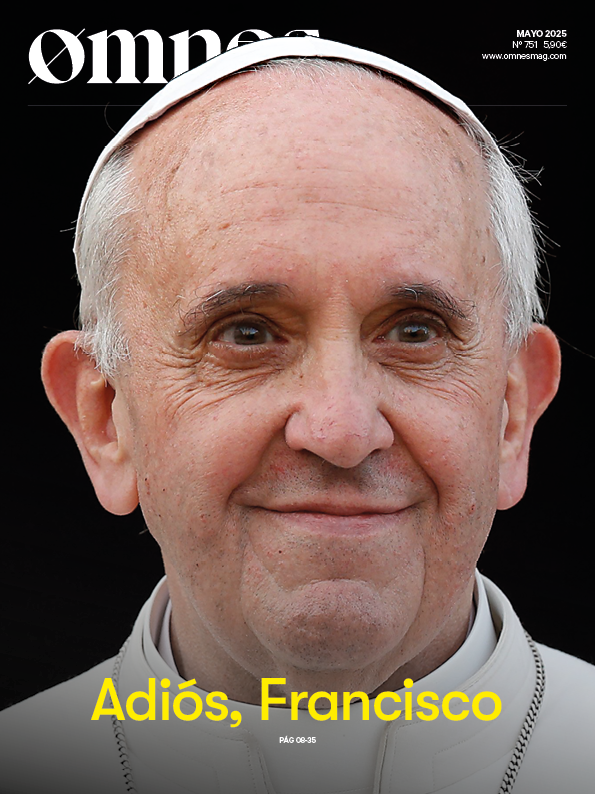Following in the footsteps of his predecessors, during the Year of the MercyThe Pope wanted to offer the Church a time of grace to take and assume a clear, attractive and radical path, as he himself told us in the Bull of Convocation: "Mercy is the main beam that supports the life of the Church." (Misericordiae vultus 10). Francis has constantly reminded us of this during these months and has succeeded in putting the Lord's desire in the hearts of men: "Blessed are the merciful, for they shall obtain mercy." (Mt 5:7).
Already in the first moments of his pontificate, he told us in different ways that the first truth of the Church is the love of Christ. I recall that, when he celebrated his first Mass with the people of Rome in March 2013, he pointed out that. "the most forceful message from the Lord". Why? Do we realize the world we live in? Do we perceive the effects of drawing boundaries and always remaining in judgment of others?
Now that we have closed the Year of Mercy, I believe that Jesus Christ would say more or less the following: "Do not do that among yourselves or with those around you, bow down to each person you meet along the way. Have the audacity to begin the new epoch inaugurated by Me; the old has passed away, something new has begun.". The best response to grace this year is to imitate the God who became man to tell us who He is and who we are: He forgives not with decrees but with caresses, He caresses the wounds of our sins to heal them. If we have had the experience of allowing ourselves to be healed by God, let us go out to change this world with the grace and strength that He gives us.
As St. John XXIII affirmed at the opening of the Second Vatican Council, "the Bride of Christ prefers to use the medicine of mercy rather than that of severity.". And as Blessed Paul VI emphasized: "My misery, mercy of God. May I at least be able to honor Who Thou art, the God of infinite goodness, by invoking, accepting, celebrating Thy most sweet mercy." (Meditation of Paul VI in the face of death).
St. John Paul II, keeping St. Faustina Kowalska in mind, later intuited that our time is precisely the time of mercy. In his encyclical Dives in misericordiasaid that "the Church lives an authentic life, when she professes and proclaims mercy - the most stupendous attribute of the Creator and Redeemer." (n. 13). In the same vein, his successor, Pope Benedict XVI, emphasized that "mercy is in fact the central core of the Gospel message". (Divine Mercy Sunday, March 30, 2008).
Today it is Pope Francis who, with his numerous gestures - with refugees, the elderly, the homeless, etc. - and now in the apostolic letter Misericordia et miserareminds us once again that "this is the time of mercy". "Every day of our life is marked by the presence of God, who guides our steps with the power of the grace that the Spirit infuses in the heart to shape it and make it capable of love. It is the time of mercy for each and every one, so that no one may think that they are outside the closeness of God and the power of his tenderness, [...] so that the weak and defenseless, those who are far away and alone may feel the presence of brothers and sisters who support them in their needs, [...] so that every sinner may not fail to ask forgiveness and to feel the hand of the Father who always welcomes and embraces." (n. 21).
Let us have the audacity to allow ourselves to be led by the Lord, in this new epoch, in this new time, to design the world with mercy, and let us lend our lives to do so. Can you imagine all the people of the world in sincere and open communion and friendship with Our Lord Jesus Christ, giving to the world the medicine of God's mercy revealed in Him? I have always understood this medicine from God's faithfulness to all men: "If we are unfaithful, He remains faithful, for He cannot deny Himself." (Tim 2:13). You and I can disown God, turn our backs on him and even sin against him, but God cannot disown himself. He remains faithful, always faithful, come what may. He does not grow weary, he waits, he encourages, he helps to get up, he never reproaches anything.
Humanity has deep wounds, the result of discarding, confrontations or so many new forms of slavery. Many believe that there are no solutions, that there is no possibility of rescue. Men and women of all ages and social situations need an embrace that saves them, that forgives them at the root and floods them with infinite love. This is the mercy that Jesus Christ offers you and that which puts you back on the path. Try it. It costs nothing. It is enough simply to let him embrace you and forgive you. It never bills you, for it makes you experience what the prodigal son saw and lived: "It was necessary to hold a feast and rejoice, because this brother of yours was dead and has come back to life; he was lost and we have found him." (Lk 15:32).
Let us dare to be designers and protagonists of the time of mercy, keeping in mind all that we have lived throughout this year.
Archbishop of Madrid








